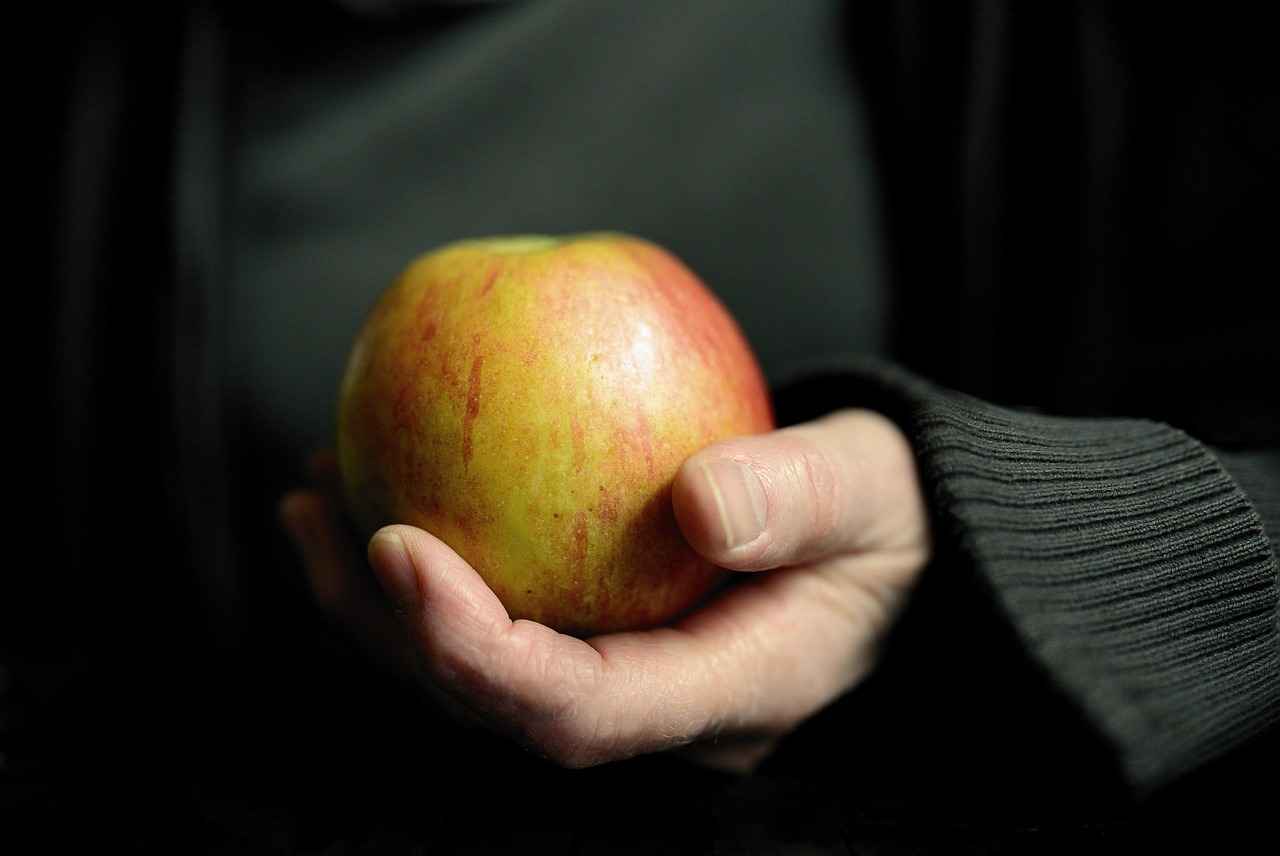This article delves into the topic of water consumption during fasting, addressing common questions and concerns while providing insights into its effects on health and fasting practices.
Understanding Fasting
Fasting is a practice that involves abstaining from food and sometimes drink for a specified period. It is crucial to understand its purpose and the different types of fasting to clarify the role of water during these periods.
Types of Fasting
- Intermittent Fasting: Alternates between eating and fasting periods.
- Water Fasting: Involves consuming only water for a set duration.
- Dry Fasting: Completely abstains from food and water.
Each type has distinct rules regarding water intake, influencing how individuals approach hydration.
Intermittent Fasting Explained
During intermittent fasting, individuals cycle between eating and fasting periods. Many people wonder if water is permissible during fasting windows and how it impacts their fasting goals. The good news is that most intermittent fasting protocols allow water consumption, which can enhance energy levels and support overall health.
Benefits of Intermittent Fasting
Intermittent fasting offers numerous health benefits, including weight loss, improved metabolic health, and enhanced mental clarity. Understanding these benefits can help clarify the necessity of hydration during fasting.
Water Intake During Intermittent Fasting
Staying hydrated is vital. Drinking water during fasting can prevent dehydration and improve overall well-being. It is essential to drink adequate amounts of water to maintain energy levels and cognitive function.
Water Fasting Overview
Water fasting involves the exclusive consumption of water for a specific period. This section discusses the implications of water intake in such fasting practices and potential health benefits, including detoxification and enhanced metabolic function.
Hydration and Health Benefits
Staying hydrated during fasting is crucial for maintaining health. Proper hydration supports bodily functions, including digestion, circulation, and temperature regulation. It can also help alleviate feelings of hunger and fatigue.
Effects of Dehydration
Dehydration can lead to various health issues, including fatigue, headaches, and impaired cognitive function. Understanding these effects emphasizes the importance of water during fasting.
How Much Water Should You Drink?
Determining the right amount of water to consume while fasting can vary based on individual needs and activity levels. Generally, it is advisable to drink at least 8-10 cups (about 2-2.5 liters) of water daily. However, personal hydration needs may differ.
Common Myths About Water and Fasting
- Myth: Water Breaks the Fast: One prevalent myth is that drinking water breaks a fast. In reality, water is generally accepted during fasting periods as it does not contain calories.
- Myth: You Should Avoid Water Completely: Another misconception suggests that all forms of hydration should be avoided during fasting. This belief is misleading and can lead to dehydration.
Practical Tips for Staying Hydrated While Fasting
Maintaining proper hydration while fasting can be challenging. Here are some practical tips:
- Timing Your Water Intake: Knowing when to drink water can enhance hydration without interfering with fasting. Aim to drink water during non-fasting hours.
- Choosing the Right Type of Water: Not all water is created equal. Consider drinking mineral or filtered water for added health benefits during fasting periods.
In summary, understanding the role of water during fasting is essential for maximizing health benefits and maintaining overall well-being. Staying hydrated can enhance your fasting experience and support your health goals.

Understanding Fasting
is essential for anyone interested in exploring its health benefits and spiritual significance. Fasting is a practice that involves abstaining from food and sometimes drink for a specified period. It has been practiced for centuries across various cultures and religions, often serving as a means of purification and self-discipline. By understanding the different types of fasting and their purposes, individuals can gain clarity on the role of water during these periods of abstinence.
Fasting can be categorized into several types, each with unique rules regarding food and water intake. The most common forms include:
- Intermittent Fasting: This method alternates between periods of eating and fasting. It is popular for weight management and metabolic health.
- Water Fasting: Involves consuming only water for a set duration, often used for detoxification.
- Dry Fasting: This more extreme form prohibits both food and water, typically for shorter periods.
When considering these fasting methods, it’s crucial to recognize how water intake can influence the fasting experience. For instance, during intermittent fasting, many people wonder about the permissibility of water and its effects on their fasting goals. Generally, most protocols allow for water consumption, as staying hydrated can enhance energy levels and support overall health.
On the other hand, water fasting presents a unique scenario where individuals are limited to water only. This type of fasting can offer potential health benefits, such as improved digestion and cellular repair. However, understanding the implications of water intake during such practices is vital for safety and effectiveness.
Staying hydrated during fasting is paramount for maintaining health. Proper hydration supports various bodily functions, including:
- Regulating body temperature
- Improving cognitive function
- Enhancing physical performance
Dehydration, on the other hand, can lead to numerous health issues, including fatigue, headaches, and impaired cognitive abilities. Therefore, understanding the effects of dehydration emphasizes the importance of water during fasting.
Determining the right amount of water to drink while fasting can vary based on individual needs, activity levels, and environmental conditions. Generally, a guideline of 2 to 3 liters per day is recommended, but listening to your body’s thirst signals is crucial. Practical tips for staying hydrated include:
- Timing Your Water Intake: Drinking water during non-fasting hours can help maintain hydration without affecting your fasting schedule.
- Choosing the Right Type of Water: Opt for mineral or filtered water to ensure you are getting essential minerals while fasting.
Despite common misconceptions, drinking water does not break a fast. Many believe that any caloric intake invalidates fasting, but water is generally accepted as a non-caloric beverage that can aid in the fasting process. Another myth is that all forms of hydration should be avoided during fasting; however, proper hydration is essential for safe fasting practices.
In summary, understanding fasting and its various types can significantly enhance your experience and health benefits. By recognizing the importance of hydration and dispelling common myths, individuals can approach fasting with confidence and clarity.

Types of Fasting
Fasting has gained popularity as a health and wellness practice, with various methods catering to different lifestyles and goals. Understanding the different is essential for anyone looking to explore this practice. Each type not only has its unique rules but also its own implications for hydration, making it crucial to know how water intake can affect your fasting experience.
Intermittent Fasting is perhaps the most well-known fasting method. It involves cycling between periods of eating and fasting. Common protocols include the 16/8 method, where individuals fast for 16 hours and eat during an 8-hour window. During the fasting period, many people question whether they can consume water. The good news is that most intermittent fasting plans allow for water consumption, which can help maintain energy levels and support metabolic health.
Another popular method is water fasting, where individuals consume only water for a set period, often ranging from 24 hours to several days. This type of fasting aims to promote detoxification and can lead to various health benefits, including improved insulin sensitivity and cellular repair. However, it’s essential to approach water fasting with caution, as prolonged fasting without food can lead to nutrient deficiencies if not done correctly.
Dry fasting, on the other hand, is a more extreme form of fasting where no food or water is consumed. This method is often practiced for shorter durations, as it can be challenging and potentially harmful if extended beyond a few hours. While some believe dry fasting can enhance detoxification, it is crucial to understand the risks involved, including dehydration and electrolyte imbalances.
Each fasting type influences hydration in different ways. For instance, while intermittent fasting encourages water intake, dry fasting strictly prohibits it, making it vital to listen to your body and understand your limits. Staying hydrated is essential for overall health, particularly during fasting, as it helps to maintain energy levels and supports vital bodily functions.
In summary, understanding the various types of fasting is crucial for anyone looking to embark on this journey. Whether opting for intermittent, water, or dry fasting, knowing the rules regarding water intake can significantly impact your experience and health outcomes. Always consult with a healthcare professional before starting any fasting regimen, especially if you have underlying health conditions.
Intermittent Fasting Explained
Intermittent fasting is a dietary strategy that alternates between periods of eating and fasting. This method has gained popularity for its potential health benefits, including weight loss, improved metabolic health, and enhanced mental clarity. As individuals embark on their intermittent fasting journey, a common question arises: Can you have water while fasting? Understanding the role of water during fasting is essential for maintaining health and achieving fasting goals.
Fasting, in its various forms, is not merely about abstaining from food; it also involves understanding the body’s needs during this period. The primary goal of intermittent fasting is to allow the body to enter a state of ketosis, where it burns fat for energy instead of glucose. During this process, hydration plays a crucial role. Water is generally considered permissible and even beneficial during fasting periods.
- Energy Levels: Staying hydrated can help maintain energy levels, reducing feelings of fatigue that may accompany fasting.
- Cognitive Function: Proper hydration supports brain function, helping to maintain focus and clarity.
- Metabolic Processes: Water is vital for various metabolic processes, including digestion and nutrient absorption.
Moreover, many people find that drinking water during fasting helps curb hunger pangs, making it easier to adhere to their fasting schedule. While some may worry that consuming water could break their fast, it is widely accepted that water does not interfere with the benefits of fasting.
The amount of water needed can vary based on factors such as body weight, activity level, and environmental conditions. A general guideline is to aim for at least 2 to 3 liters of water daily. Listening to your body’s thirst signals is crucial, as this can help you stay adequately hydrated.
Several myths surround the consumption of water during fasting. One prevalent myth is that drinking water breaks a fast. However, this misconception is unfounded. Water does not contain calories and does not trigger insulin responses, making it an ideal beverage during fasting periods.
Another myth suggests that individuals should avoid all forms of hydration while fasting. This belief can lead to dehydration, which can cause fatigue, headaches, and impaired cognitive function. It is essential to debunk these myths to clarify that water is a vital component of a successful fasting regimen.
- Timing Your Water Intake: Drinking water throughout the day, rather than all at once, can enhance hydration levels without interfering with your fasting.
- Choosing the Right Type of Water: Opt for filtered or mineral water, as these can provide additional benefits through minerals that support hydration.
- Flavoring Your Water: If plain water becomes monotonous, consider adding a slice of lemon or cucumber for a refreshing twist without breaking your fast.
In conclusion, staying hydrated while practicing intermittent fasting is not only permissible but also beneficial. Water consumption can enhance energy levels, cognitive function, and overall well-being during fasting periods. By understanding the importance of hydration and debunking common myths, individuals can approach intermittent fasting with confidence and clarity.
Benefits of Intermittent Fasting
Intermittent fasting has gained significant popularity in recent years due to its numerous health benefits. This dietary approach, which alternates periods of eating and fasting, has been linked to various positive outcomes, including weight loss, enhanced metabolic health, and improved overall well-being. Understanding these benefits can clarify the necessity of hydration during fasting, as staying hydrated is crucial for maximizing the positive effects of this practice.
One of the most significant advantages of intermittent fasting is its ability to promote weight loss. By limiting the time window for eating, individuals often consume fewer calories, which can lead to a caloric deficit. Additionally, fasting triggers metabolic changes that facilitate fat burning, making it an effective strategy for those looking to shed excess pounds.
Another remarkable benefit of intermittent fasting is its impact on metabolic health. Research indicates that this fasting method can improve insulin sensitivity, lower blood sugar levels, and reduce inflammation. These factors play a vital role in preventing chronic diseases such as type 2 diabetes and heart disease. Furthermore, intermittent fasting has been linked to enhanced brain function, potentially reducing the risk of neurodegenerative diseases.
While the benefits of intermittent fasting are compelling, it’s essential to address the role of hydration during fasting periods. Many individuals may wonder if drinking water or other non-caloric beverages is permissible while fasting. The answer is generally affirmative: most intermittent fasting protocols allow for water consumption. Staying hydrated can help maintain energy levels, support metabolic processes, and prevent dehydration-related issues.
Moreover, proper hydration during fasting can enhance the body’s ability to detoxify. Water plays a crucial role in flushing out toxins and waste products, which is particularly important when the body is in a state of fasting. Dehydration can lead to various health issues, including fatigue, headaches, and impaired cognitive function, which can undermine the benefits of fasting.
To optimize hydration while fasting, individuals should aim to drink water consistently throughout the day. A general guideline is to consume at least 8-10 cups of water daily, but this can vary based on individual needs, activity levels, and climate. It’s also beneficial to listen to your body; if you feel thirsty, it’s essential to drink water to maintain hydration.
In summary, intermittent fasting offers a plethora of health benefits, including weight loss and improved metabolic health. However, the importance of hydration cannot be overstated. By ensuring adequate water intake, individuals can enhance their fasting experience and support their overall health. Understanding the relationship between fasting and hydration is crucial for anyone looking to adopt this dietary approach effectively.
Water Intake During Intermittent Fasting
Intermittent fasting (IF) has gained significant popularity as a method for weight management and overall health improvement. A common question among practitioners is whether water consumption is allowed during fasting periods. The answer is a resounding yes! Most intermittent fasting protocols permit water intake, and here’s why it is essential.
Staying hydrated during fasting is crucial for several reasons. First and foremost, water plays a vital role in maintaining energy levels. When the body is deprived of food, it can become fatigued, leading to decreased productivity and motivation. Drinking water helps to combat this fatigue, keeping you alert and focused.
Additionally, hydration supports metabolic processes within the body. Water is necessary for digestion, nutrient absorption, and waste elimination. During fasting, these processes continue, and adequate hydration ensures they function smoothly. Furthermore, being well-hydrated can help mitigate feelings of hunger, making it easier to adhere to fasting schedules.
To maximize the benefits of water during intermittent fasting, consider the following guidelines:
- Listen to Your Body: Pay attention to signs of dehydration, such as dry mouth, fatigue, or headaches. If you experience these symptoms, it’s essential to drink water.
- Timing Matters: While you can drink water during fasting periods, some people find it helpful to space out their water intake. This strategy can prevent overwhelming your stomach, especially if you’re also consuming other non-caloric beverages.
- Quality of Water: Not all water is the same. Opt for filtered or mineral water to ensure you’re getting essential minerals that can enhance hydration.
Moreover, research supports the notion that hydration is key during fasting. A study published in the Journal of Nutrition indicates that even mild dehydration can impair cognitive function, highlighting the importance of water intake for mental clarity, especially during fasting periods when you need to stay sharp.
It’s also worth debunking some common myths surrounding water consumption during intermittent fasting. One prevalent misconception is that drinking water can break a fast. In reality, water is a zero-calorie beverage, and it does not trigger insulin responses that would interfere with fasting benefits. Another myth suggests that all forms of hydration should be avoided, but this is misleading; proper hydration is essential for maintaining health during fasting.
In conclusion, water is not only permissible but also beneficial during intermittent fasting. Staying hydrated enhances energy levels, supports metabolic functions, and helps manage hunger. By following practical hydration strategies, individuals can optimize their fasting experience and enjoy the numerous health benefits associated with intermittent fasting.
Water Fasting Overview
Water fasting is a dietary practice that involves consuming only water for a specified duration, often ranging from 24 hours to several days. This method of fasting has gained popularity for its potential health benefits and simplicity. In this section, we will delve into the implications of water intake during fasting and explore the various health benefits associated with this practice.
During a water fast, the body undergoes several metabolic changes. As the body shifts from using glucose for energy to utilizing fat stores, it enters a state known as ketosis. This metabolic transition can lead to weight loss and improved insulin sensitivity. Furthermore, studies suggest that water fasting may promote autophagy, a cellular repair process that helps eliminate damaged cells and regenerate new ones.
One of the primary concerns regarding water fasting is maintaining proper hydration. While it may seem counterintuitive to limit consumption to just water, staying hydrated is crucial for overall health. Water plays an essential role in various bodily functions, such as digestion, temperature regulation, and nutrient absorption. A common guideline is to drink at least 2-3 liters of water daily during a fast, although individual needs may vary based on factors like activity level and climate.
| Health Benefits of Water Fasting | Description |
|---|---|
| Weight Loss | Promotes fat burning as the body uses stored fat for energy. |
| Improved Metabolic Health | Enhances insulin sensitivity and reduces blood sugar levels. |
| Cellular Repair | Stimulates autophagy, aiding in the removal of damaged cells. |
| Enhanced Mental Clarity | May improve focus and cognitive function during fasting periods. |
Despite the potential benefits, it is essential to approach water fasting with caution. Individuals with certain health conditions, such as diabetes or eating disorders, should consult a healthcare professional before embarking on a water fast. Additionally, it is crucial to listen to your body; if you experience dizziness, extreme fatigue, or other concerning symptoms, it may be necessary to break the fast.
In summary, water fasting can be a powerful tool for those looking to improve their health and well-being. By understanding the implications of water intake and the potential benefits of this fasting method, individuals can make informed decisions about their fasting practices. Always prioritize hydration and consult with healthcare providers to ensure a safe and effective fasting experience.

Hydration and Health Benefits
Staying hydrated during fasting is crucial for maintaining health and well-being. The act of fasting, whether for spiritual, health, or weight loss purposes, can place unique demands on the body. Proper hydration plays a vital role in ensuring that the body functions optimally during these periods of abstention from food.
One of the primary benefits of hydration is its ability to regulate body temperature. When fasting, the body can become more susceptible to temperature fluctuations. Drinking adequate water helps maintain a stable internal environment, preventing overheating or excessive cooling.
Additionally, hydration supports cognitive function. Studies have shown that even mild dehydration can impair concentration and cognitive abilities. This is particularly important during fasting, as individuals may need to maintain focus for work, study, or other daily activities. By ensuring proper hydration, one can enhance mental clarity and productivity.
Water also plays a crucial role in digestion and metabolism. While fasting, the body continues to rely on water for various metabolic processes. Proper hydration aids in the breakdown of nutrients and the elimination of waste products, even when food intake is restricted. This helps prevent feelings of sluggishness and fatigue that can accompany fasting.
Moreover, hydration is essential for maintaining electrolyte balance. During fasting, especially if combined with exercise, the body can lose electrolytes through sweat. Drinking water helps replenish these essential minerals, which are vital for nerve function and muscle contractions. This balance is crucial to avoid cramps and other issues that can arise from dehydration.
To better understand the importance of hydration while fasting, consider the following key points:
- Energy Levels: Staying hydrated can help maintain energy levels, preventing the fatigue that often accompanies fasting.
- Skin Health: Adequate water intake can improve skin elasticity and appearance, which may suffer during fasting periods.
- Detoxification: Water assists in flushing out toxins, supporting the liver and kidneys in their detoxification processes.
It is important to note that hydration needs can vary from person to person. Factors such as age, gender, activity level, and environmental conditions can influence how much water one should consume while fasting. A general guideline is to aim for at least 8-10 cups of water daily, but individuals may need more based on their specific circumstances.
In conclusion, staying hydrated during fasting is not just a recommendation; it is a necessity for maintaining health and well-being. By understanding the myriad benefits of hydration, individuals can make informed choices that support their fasting practices and overall health.
Effects of Dehydration
Dehydration is a condition that occurs when the body loses more fluids than it takes in, and it can have serious implications for overall health. Understanding the is particularly important for individuals who are fasting, as the absence of food and, in some cases, liquid intake can exacerbate these effects.
One of the most immediate consequences of dehydration is fatigue. When the body is not adequately hydrated, energy levels can plummet, making it difficult to perform daily tasks or engage in physical activity. This lack of energy not only affects the body but also has a significant impact on mental clarity and cognitive function.
Research indicates that even mild dehydration can impair cognitive abilities, leading to difficulties in concentration, memory, and decision-making. Individuals who are fasting may find it increasingly challenging to focus, which can hinder their productivity and overall well-being. This cognitive decline is often accompanied by feelings of irritability and mood swings, further complicating the fasting experience.
Moreover, dehydration can affect physical performance. During fasting, individuals may engage in exercise to maintain fitness; however, without sufficient water intake, the body becomes less efficient at regulating temperature and transporting nutrients. This can lead to decreased endurance and increased risk of injury.
The long-term effects of chronic dehydration can be even more alarming. Prolonged periods without adequate fluid intake can lead to serious health issues such as kidney stones, urinary tract infections, and even kidney failure. Additionally, dehydration can contribute to digestive problems, as the body struggles to process food without sufficient water.
Understanding these effects emphasizes the critical importance of water consumption during fasting. While many fasting protocols allow for water intake, the quantity and timing can significantly influence hydration levels. Therefore, it is essential to prioritize hydration to mitigate the adverse effects of dehydration.
In conclusion, recognizing the detrimental effects of dehydration is vital for anyone considering or practicing fasting. By ensuring adequate water intake, individuals can maintain their energy levels, cognitive function, and overall health, thereby enhancing their fasting experience.
- Fatigue: A common symptom of dehydration that can hinder daily activities.
- Cognitive Impairment: Dehydration can lead to reduced concentration and memory issues.
- Physical Performance: Lack of hydration can affect endurance and increase injury risk.
- Long-term Health Risks: Chronic dehydration can lead to severe health complications.
How Much Water Should You Drink?
When it comes to fasting, one of the most frequently asked questions is about hydration, specifically, how much water should you drink? The answer isn’t straightforward, as it largely depends on individual factors such as body weight, activity level, and overall health. However, understanding the general guidelines can help ensure optimal hydration while fasting.
During fasting, especially intermittent fasting, staying hydrated is crucial. Water not only helps to maintain bodily functions but also aids in controlling hunger pangs and boosting energy levels. The general recommendation is to drink at least 2 to 3 liters of water daily, but this can vary based on personal needs.
| Factor | Recommended Water Intake |
|---|---|
| Light Activity | 2 liters |
| Moderate Activity | 2.5 liters |
| High Activity | 3 liters or more |
It’s important to listen to your body. If you feel thirsty, it’s a clear sign that you need to hydrate. Additionally, factors such as climate and diet can influence your hydration needs. For instance, if you consume a lot of salty or sugary foods during your eating windows, you may require more water to balance your body’s needs.
- Monitor Your Urine Color: A simple way to gauge hydration is by checking the color of your urine. Pale yellow indicates proper hydration, while darker shades suggest a need for more water.
- Drink Water Before Meals: Consuming water before meals can help control appetite and aid digestion, making it easier to manage your fasting periods.
- Spread Out Water Intake: Instead of drinking large amounts at once, try to sip water throughout the day to maintain steady hydration levels.
Another aspect to consider is the temperature of the water. Some studies suggest that drinking cold water can increase metabolism slightly, while warm water may aid digestion. Ultimately, the best choice is the one that you enjoy and can maintain consistently.
In conclusion, while there is no one-size-fits-all answer to how much water you should drink while fasting, following these guidelines can help you find a balance that works for your body. Remember, staying hydrated is essential for both your health and your fasting success.

Common Myths About Water and Fasting
Fasting, a practice embraced for various reasons, often brings along a myriad of misconceptions regarding hydration. While some individuals may believe that drinking water during fasting can undermine its benefits, the truth is more nuanced. This section aims to debunk prevalent myths surrounding water consumption during fasting and provide factual insights to clarify these misunderstandings.
- Myth: Water Breaks the Fast
- Myth: You Should Avoid Water Completely
- Myth: Drinking Water Will Make You Hungry
- Myth: All Water is Equal
- Myth: You Can Only Drink Water During Water Fasting
One of the most widespread myths is that consuming water interrupts the fasting state. In reality, water is calorie-free and does not trigger insulin release, which is a critical factor in maintaining a fast. Research indicates that staying hydrated can enhance metabolic processes and support the body’s natural detoxification during fasting periods.
Another common belief is that all forms of hydration need to be avoided to achieve the desired effects of fasting. This notion is misleading. Adequate hydration is essential for overall health and can actually improve fasting outcomes. Dehydration can lead to fatigue, headaches, and decreased cognitive function, which can hinder the fasting experience.
Some people fear that drinking water might stimulate hunger pangs. However, water can help curb appetite by filling the stomach and providing a sense of fullness. Many individuals find that staying hydrated helps them manage hunger more effectively during fasting periods.
While hydration is crucial, not all water sources provide the same benefits. Mineral water, for instance, contains essential electrolytes that can support bodily functions during fasting. Understanding the different types of water can help individuals make informed choices that enhance their fasting experience.
While water fasting strictly involves consuming only water, other forms of fasting, such as intermittent fasting, typically allow for water intake. This flexibility can help individuals maintain hydration without compromising their fasting goals.
In summary, it is essential to approach the topic of water consumption during fasting with a clear understanding. The myths surrounding hydration can lead to unnecessary confusion and anxiety. By debunking these misconceptions, individuals can make informed choices that promote both their fasting goals and overall health. Staying hydrated is not just permissible; it is often recommended for a successful fasting experience.
Myth: Water Breaks the Fast
One of the most common misconceptions surrounding fasting is the belief that drinking water breaks a fast. This myth can lead to unnecessary confusion and anxiety for those engaging in fasting practices. To clarify, it is essential to understand the role of water in the context of fasting and its implications for health and wellness.
Fasting, in its various forms, typically involves abstaining from food and sometimes beverages for a predetermined period. However, the guidelines regarding water consumption can differ significantly among different fasting methods. For instance, in intermittent fasting, where individuals alternate between eating and fasting windows, water intake is generally permitted and even encouraged.
- Hydration is Key: Staying hydrated during fasting is crucial for maintaining energy levels and supporting bodily functions. Dehydration can lead to fatigue, headaches, and impaired cognitive function, which can hinder the fasting experience.
- Water’s Role: Water does not contain calories or carbohydrates, which means it does not trigger the metabolic processes that break a fast. Instead, it helps in flushing out toxins and can even aid in appetite control.
Moreover, different types of fasting have their own rules regarding water intake. For example, in water fasting, the only permissible intake is water, emphasizing its importance during the fasting period. This type of fasting aims to promote detoxification and can lead to numerous health benefits when done correctly.
Another aspect to consider is the psychological effect of believing that water breaks a fast. Many individuals may feel guilty or anxious about consuming water, which can detract from the overall benefits of fasting. Understanding that hydration is not only acceptable but beneficial can alleviate these concerns.
In addition, some people worry that drinking water may lead to feelings of fullness, thereby interfering with their fasting goals. However, the sensation of fullness from water is temporary and does not equate to the caloric intake that would break a fast.
It is also important to note that the body requires adequate hydration to function optimally. During fasting, metabolic processes continue, and water plays a vital role in these processes, including digestion, nutrient absorption, and temperature regulation. Therefore, consuming water while fasting can actually enhance these functions rather than hinder them.
In conclusion, the notion that water breaks a fast is a myth that can lead to unnecessary restrictions during fasting. Instead, it is clear that water is not only permissible but essential for maintaining health and well-being during fasting periods. By debunking this myth, individuals can approach fasting with a clearer understanding of hydration’s role, ultimately enhancing their fasting experience.
Myth: You Should Avoid Water Completely
When it comes to fasting, there are many misconceptions that can cloud understanding and lead to unnecessary confusion. One of the most pervasive myths is the belief that all forms of hydration should be avoided during fasting. This notion is not only misleading but can also be detrimental to health. In this section, we will explore why staying hydrated is essential during fasting periods and debunk the myth that one should completely avoid water.
First and foremost, it’s important to recognize that hydration plays a crucial role in maintaining bodily functions. Water is vital for various physiological processes, including digestion, circulation, and temperature regulation. When fasting, the body still requires water to perform these essential functions. Therefore, completely avoiding water is not only unnecessary but can also lead to dehydration, which can cause fatigue, dizziness, and impaired cognitive function.
Additionally, many fasting protocols, particularly intermittent fasting, explicitly allow for water consumption. During the fasting window, drinking water can actually enhance energy levels and support overall health. It helps in flushing out toxins and can even aid in curbing hunger pangs, making it easier to stick to a fasting regimen. This contradicts the idea that one should avoid water entirely.
- Supports Metabolism: Staying hydrated can help maintain metabolic rates, which is crucial for those looking to lose weight or improve health.
- Enhances Mental Clarity: Adequate hydration is linked to improved focus and cognitive function, which can be particularly beneficial during fasting periods.
- Regulates Body Temperature: Water helps in thermoregulation, which is essential during fasting, especially in extreme temperatures.
Moreover, the belief that drinking water breaks a fast is another misconception that needs addressing. Water is devoid of calories and does not trigger an insulin response, which means it does not interfere with the metabolic state of fasting. Therefore, individuals can drink water without the fear of breaking their fast.
In summary, the idea that all forms of hydration should be avoided during fasting is a myth that can lead to negative health outcomes. Staying hydrated is essential for maintaining health, enhancing fasting benefits, and ensuring that the body functions optimally. It is crucial to embrace water as a valuable ally during fasting rather than viewing it as a foe. By understanding the importance of hydration, individuals can approach fasting with a more informed perspective, allowing for a healthier and more effective fasting experience.

Practical Tips for Staying Hydrated While Fasting
Maintaining proper hydration while fasting can be a challenging task. Many individuals struggle to find the right balance between staying hydrated and adhering to their fasting goals. This section offers practical tips to help individuals stay hydrated without breaking their fast.
- Timing Your Water Intake: One effective strategy is to time your water consumption wisely. Consider drinking water during the non-fasting hours, especially before and after your eating window. This allows you to replenish fluids without interfering with your fasting period.
- Opt for Mineral Water: Not all water is equal. Mineral water contains essential minerals that can help maintain electrolyte balance during fasting. This is particularly important as fasting can lead to a loss of electrolytes, which can cause fatigue and weakness.
- Infuse Your Water: If you find plain water boring, consider infusing your water with natural flavors. Adding slices of lemon, cucumber, or mint can make hydration more enjoyable without adding calories. This can also provide a refreshing taste that encourages more frequent water intake.
- Set Reminders: It can be easy to forget to drink water, especially during busy days. Setting reminders on your phone or using a hydration tracker app can help you maintain your water intake throughout the day.
- Listen to Your Body: Pay attention to your body’s signals. If you feel thirsty, it’s a clear indicator that you need to hydrate. However, it’s important to differentiate between thirst and hunger. Staying attuned to your body can help you make informed decisions about when to drink water.
- Hydrating Foods: Incorporating hydrating foods into your eating window can also aid in hydration. Foods like watermelon, cucumbers, and oranges have high water content and can help you stay hydrated while providing essential nutrients.
- Temperature Matters: Some people find that drinking cold water can be more refreshing, while others prefer it at room temperature. Experimenting with different temperatures can help you find what encourages you to drink more.
- Avoid Caffeine and Alcohol: While it might be tempting to reach for caffeinated or alcoholic beverages, these can lead to dehydration. Stick to water or herbal teas that are caffeine-free to ensure you’re maximizing your hydration.
By implementing these strategies, individuals can enhance their hydration levels while fasting, supporting their overall health and well-being. Staying hydrated is not just about drinking water; it’s about making informed choices that align with your fasting goals.
Timing Your Water Intake
When it comes to fasting, hydration plays a crucial role in maintaining overall health and well-being. Understanding can significantly enhance your hydration levels without disrupting your fasting routine. Here, we explore effective strategies for optimal water consumption during fasting hours.
First and foremost, it’s essential to recognize that water does not contain calories and, therefore, does not break a fast. This allows individuals to hydrate freely during their fasting periods, which can aid in various bodily functions, including digestion and energy regulation.
- Start Your Day with Water: If you are practicing intermittent fasting, consider drinking water first thing in the morning. This can help kickstart your metabolism and hydrate your body after several hours of fasting.
- Pre-Meal Hydration: If your fasting window is about to close, consume a glass of water before your meal. This can help with portion control and enhance digestion.
- Hydrate Throughout the Day: During your eating window, aim to drink water consistently. Spreading your water intake throughout the day ensures that you remain hydrated without overwhelming your system.
Additionally, consider the temperature of the water you consume. Some studies suggest that drinking cold water can increase metabolism slightly as your body works to warm it up, while warm water can be soothing and may assist in digestion.
Another effective strategy is to listen to your body. Pay attention to signs of dehydration, such as thirst, dry mouth, or fatigue. If you experience these symptoms during your fasting hours, it is a clear indication that you should increase your water intake.
Moreover, incorporating electrolytes can also be beneficial during prolonged fasting. Consider adding a pinch of sea salt or a splash of lemon juice to your water to replenish lost minerals and maintain electrolyte balance.
It’s important to note that the amount of water needed can vary based on individual factors such as body weight, activity level, and climate. A general guideline is to aim for at least 8-10 cups of water daily, adjusting as necessary to meet your personal hydration needs.
In summary, timing your water intake effectively during fasting can enhance hydration and support overall health. By adopting these strategies, you can ensure that you stay well-hydrated without compromising your fasting goals. Remember, hydration is key to feeling your best while navigating the fasting journey.
Choosing the Right Type of Water
When it comes to fasting, hydration plays a crucial role in maintaining health and well-being. However, not all water is created equal. Different types of water can have varying effects on your body, especially during fasting periods. This section delves into the benefits of various water types, such as mineral water, filtered water, and spring water, and how they can enhance your fasting experience.
- Mineral Water: Rich in essential minerals like calcium, magnesium, and potassium, mineral water can help replenish electrolytes that may be lost during fasting. These minerals are vital for maintaining muscle function and nerve transmission, which is particularly important when your body is in a state of metabolic adjustment.
- Filtered Water: Filtering water removes impurities and contaminants, ensuring that you consume clean and safe water. During fasting, drinking filtered water can help your body detoxify more effectively, promoting better digestion and overall health.
- Spring Water: Sourced from natural springs, spring water often contains a balanced mix of minerals and is typically free from pollutants. Its natural composition can support hydration more effectively than tap water, making it an excellent choice during fasting.
Additionally, the pH level of the water you consume can also impact your fasting experience. For instance, alkaline water, which has a higher pH, may help neutralize acidity in the body, promoting a more balanced internal environment. This can be beneficial during fasting, as it may enhance metabolic processes and improve energy levels.
Another factor to consider is the temperature of the water. Drinking room temperature or slightly warm water can aid in digestion and absorption, making it a preferable choice during fasting. Cold water, on the other hand, may cause your body to expend energy to warm it up, which could be counterproductive during a fasting period.
In conclusion, choosing the right type of water is essential for optimizing your fasting experience. By selecting mineral, filtered, or spring water, you can ensure that your body remains hydrated and nourished, ultimately supporting your health and fasting goals. Remember to listen to your body and adjust your water intake based on your individual needs and responses.
Frequently Asked Questions
- Can I drink water during intermittent fasting?
Absolutely! Most intermittent fasting protocols actually encourage water consumption. Staying hydrated can help maintain your energy levels and support your overall health while you fast.
- Does drinking water break my fast?
Nope! Drinking water does not break your fast. In fact, it’s generally accepted that water can be consumed freely during fasting periods without interfering with your fasting goals.
- How much water should I drink while fasting?
The amount of water you should drink can vary based on your individual needs, activity levels, and climate. A good rule of thumb is to aim for at least 8-10 cups (about 2-2.5 liters) of water per day, but listen to your body and adjust accordingly.
- What are the signs of dehydration during fasting?
Common signs of dehydration include fatigue, dizziness, dry mouth, and headaches. If you experience any of these symptoms, it’s essential to drink water immediately to rehydrate.
- Can I drink flavored water or herbal teas while fasting?
While plain water is the safest bet, many people find that herbal teas or flavored water (without added sugars or calories) can be enjoyable and hydrating during fasting. Just be mindful of any additives!














